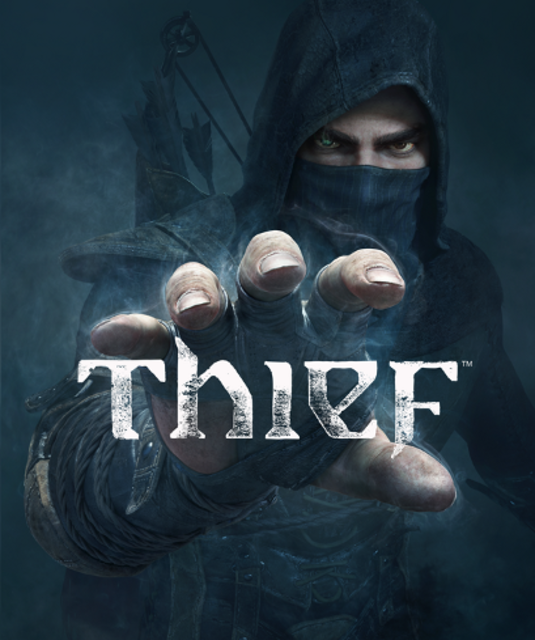Money for Nothin'
The past couple of years have seen many successful reboots to franchises. Tomb Raider, DmC, and XCOM: Enemy Unknown have managed to raise the already high bar for their respective series while bringing with them the quality and depth their hardcore fans loved. Other reboots, like Splatterhouse or Alone in the Dark, have proven that without the polish, a revitalized franchise is not a guaranteed success. Unfortunately, Eidos’ recently released Thief is another title to add to that list.
Thief manages to draw out all the intrigue that Looking Glass Studios crafted in 1998′s Thief: The Dark Project and leave an unconscious, drunken soldier in its place. The interesting old factions are referenced only in letters and in their place sits a stereotypically “evil” corrupt government. Hero of Thief games past, Garrett, has been replaced with an apathetic, soulless avatar for the player to control with what appears to be only one motivation – clearing his conscience of a poorly acted death scene early in the game, but with no real sense to what his relationship with the victim was, this completely falls flat. The story then populates itself with lifeless characters for the sake of having antagonists but does so without fleshing any of them out.
Despite a story that redefines mediocrity, Thief does evoke some of the previous games’ charm. I felt a tinge of nostalgia early on, particularly when studying enemy patrol routes and environmental mechanics to sneak through an area completely undetected. The actual thieving element of the game is well thought out, and hurriedly picking locks before guards walk by proves to be just as tense as it used to be.
With a large city to explore and many buildings to plunder, actually getting around becomes paramount to a solid experience. Movement is decidedly Assassin’s Creed-inspired in that the player must hold down a “parkour” button to traverse the environment. While this system allows for organic movement, it also removes the ability to jump manually. Surprisingly, the absence of what feels like such a key feature in other first person games does not ultimately detract from the experience.
Eidos has also introduced the “swoop” mechanic. Essentially an analogue to Corvo’s “blink” move in Dishonored, swoop allows for a quick dash to make moving from cover to cover a fluid, easily managed ability. While it does not grant full invisibility, it is fast enough for guards to barely notice, and proves incredibly useful as the game’s difficulty ramps up in later missions.
Enemy AI is generally acceptable despite occasionally poor pathfinding skills and an exceedingly quick loss of interest once line of sight is broken. Some patrol routes prove to be awkwardly designed, but with the maze of a city this game takes place in, this is unsurprising.
With plenty of buildings to break into but strangely disconnected districts, getting lost is easily accomplished. The map proves to be completely unhelpful in attempting to get around, with no details and a bizarre waypoint system that only somewhat leads the player in the right direction. Another baffling decision lies in Thief‘s use of windows rather than doors to break up the game’s zones, making it the player’s job to remember exactly what building leads where. A marker on the map would have been exceedingly helpful, but after attempting to use the game’s waypoints, it is debatable as to whether markers would change much.
While the idea of slipping into buildings makes sense in the game’s fiction, its implementation is terribly frustrating. To open any window, the player must execute a quicktime event. Whether or not the window leads to another district is not denoted and the QTE can not be backed out of. To further test the player’s patience, the button mashing must be executed on both sides. This distraction manages to cover up loading screens, but often the rooms are so small that a load seems needless.
These small rooms also tend to be the locations of many side missions Garrett can pick up and prove to be just as meaningless then. With no impact on the game aside from monetary gain, side quests appear to be attempts to artificially extend the story and nothing more. Some of these missions actually have interesting descriptions but without dialogue or any real conclusions, they tend to feel like wasted opportunities.
The game’s biggest problem lies in its audio. Sound design is an extremely important element in any genre, and in a series like Thief, it can mean the difference between living and reloading your last save. Eidos has managed to completely botch the audio in this game, leaving in an unacceptable number of bugs.
On several occasions, I listened to two guards having a conversation on loop, with the audio actually repeating over itself. Another issue emerged during cutscenes and story sequences. Often, the music or NPC chatter played louder than the character speaking, and with oddly delayed subtitles it became hard to parse what exactly was going on in the story. Not being able to properly hear the deadpan delivery and comically serious nature of lines from the characters might feel like a blessing, but when attempting to follow Thief‘s mindless plot, it does lead to even more confusion.
The number of bugs is extremely unfortunate because Thief is not actually an offensively bad game. The gameplay is solid, it looks good, and were it not for the poor storytelling, it could be something very special.
Ultimately, Thief‘s biggest downfall lies in its potential. The legacy of the franchise and the array of possibilities that a game based in its world could draw from should be enough to drive Thief forward, but a lack of polish and a miserable story leave this one slinking in the shadows.
